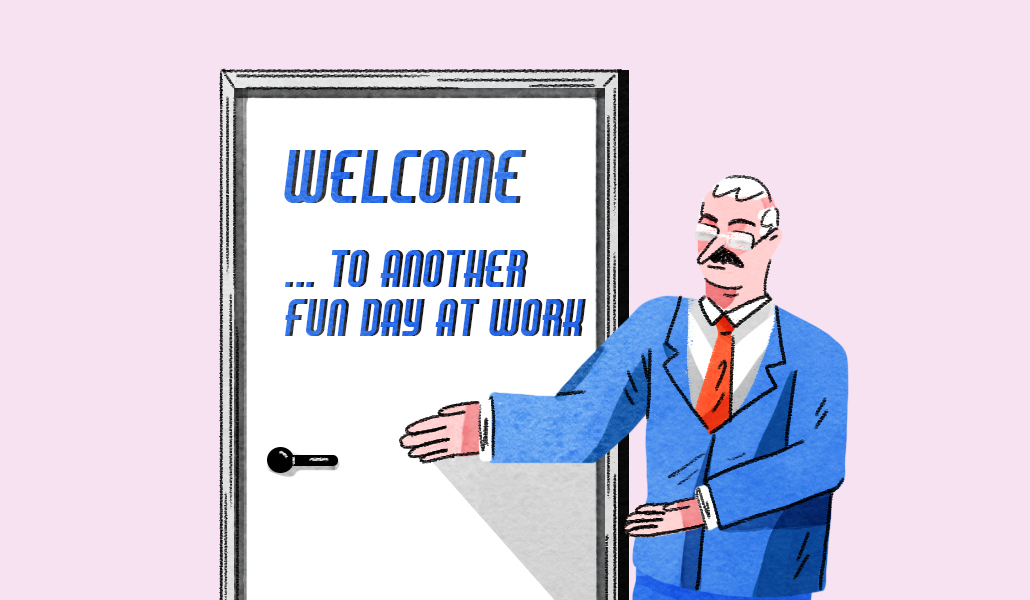Here are the unintended consequences of overconfidence in the workplace

Neither side of the confidence spectrum will get you far in the workplace.
On one side, there’s imposter syndrome, where people doubt their skills so much that they don’t believe in themselves. On the flip side is overconfidence, which may or may not be justified, but either way leads to an unwillingness to collaborate with others. While the negative effects of imposter syndrome have been well documented, overconfidence can be just as much of a workplace problem if not remedied.
Claire Steichen, founder of Clear Strategy Coaching, dubs it “the confidence lie” when someone leverages knowledge or talent to build an impressive, inflated personality that conceals the internal insecurity they probably have. She says that it’s saturating the clients that she works with.
“It’s that instinct that people have to mask insecurity and a sense of not belonging by actually leveraging all of these amazing things they can do,” said Steichen.
Granted, they may well be adept at those things, but it conveniently masks what they’re not good at. With this mindset, it leaves no room to be vulnerable in the workplace or admit where you could grow.
“What happens is that by being ‘better than,’ you end up alienating people,” said Steichen. “What you really want is belonging, but you’re actually creating distance. People don’t want to hang out with someone who is a show off.”
Steichen teaches classes for business school students at Columbia University and often witnesses consistent one-upmanship among the attendees.
“There was very little vulnerability and less connection,” said Steichen. “It was all of this insecurity driving this boastful external shell.”
While those were students, the same behaviors play out in the workplace. Instead of asking for help, those who are overconfident say ‘I’m good, I got this,’ instead of admitting they need help. When this way of thinking persists, people stop knowing how to ask for help, which can be particularly dangerous in the workplace.
“These strivers, what I call the nine percenters, are under enormous pressure,” said Steichen. “Sometimes what can happen is to deal with that, they fake it ‘til they make it.”
Similar to imposter syndrome, overconfidence is a psychological issue that weaves into mental health in the workplace. Chris Marsh, svp of marketing at automation machinery maker MattressTek, stressed that when someone is overconfident in the workplace it can affect how they are seen and treated and could even end with loneliness and isolation if no one wanted to work with that individual moving forward. “If it’s a front, what’s going on inside?,” he added.
That’s why it’s best to be honest with yourself and have self-check-ins. Otherwise, such behavior can alienate colleagues and even affect work performance too
“Understanding what we can do but also knowing our limits is the best way to deal with this problem,” said Jake Munday, CEO and co-founder of business sign company Custom Neon. “Overconfidence may lead to us underestimating how complex a certain project or task is. This could leave us unprepared, which would also affect how customers see our business.”
An overconfident leader might make others feel uncomfortable sharing their ideas, resulting in little to no collaboration, added Munday. Someone who is overconfident might also not be able to recognize and learn from their mistakes. “It’s unlikely that anyone who is overconfident and won’t accept responsibility for their mistakes will be able to grow their skills and improve,” said Munday.
David M. M. Taffet, a professional work coach, agrees. He sees overconfidence as an ongoing problem in the workplace.
“I find people who are blinded by their sense of being absolutely right,” said Taffet. “They demand loyalty, which shows up as toxicity. There is such arrogance behind this belief that if you don’t see it my way, you’re wrong.”
It results in a workplace where there is no psychological safety, collaboration, and is ultimately rigid because of the lack of idea sharing.
“You’re going to continue to miss out on contrary opinions or really rich perspectives,” said Taffet. “Even if you succeed in what your objective might have been because you’re ‘right,’ you probably missed so many wins along the way because it would’ve made it a better experience.”
Taffet’s advice? Keep a beginners mindset. No matter what seniority you have in a company, it’s worthwhile to look at things with a fresh perspective and ask questions. “If you allow yourself to work with people, you’re going to win,” said Taffet. “You don’t need to be right, you need to be with them.”


